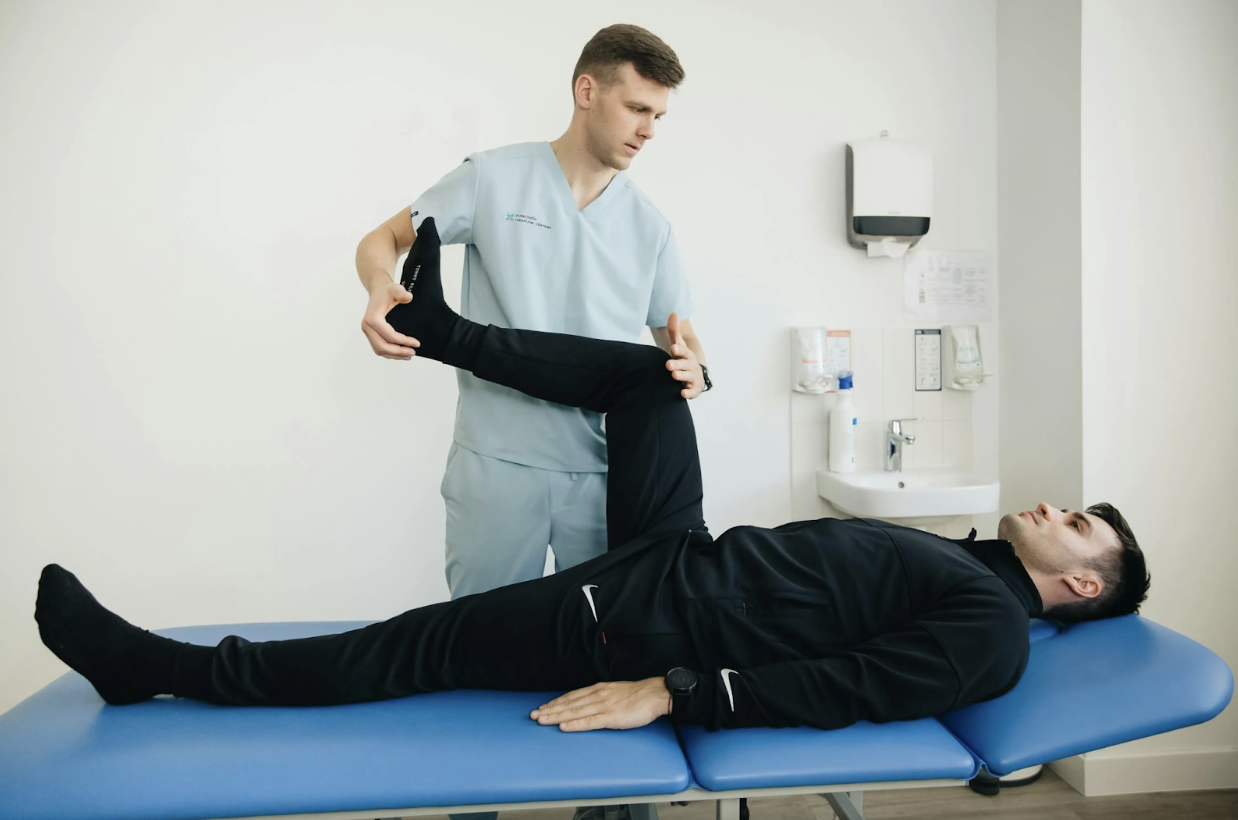A Guide to Recovery and Moving Forward After a Car Accident
Car accidents are an unfortunate reality that many people face, often leaving individuals with physical injuries, emotional distress, and financial burdens. The aftermath of an accident can feel overwhelming, with countless steps to take for physical recovery, insurance claims, and potential legal battles. However, with the right information and support, it's possible to navigate this process and move forward with confidence. This guide will walk you through the steps of recovery and provide tips on how to manage the challenges that come with being involved in a car accident.
1. Prioritize Your Physical Health
Your physical health should always be your first concern after a car accident. Even if you feel fine immediately following the crash, it’s important to seek medical attention. Some injuries, such as whiplash or internal bleeding, may not be immediately obvious and can worsen over time if left untreated. Visit a doctor or an emergency room as soon as possible after the accident, even if you don't experience any pain. A medical professional will be able to assess your condition, diagnose any hidden injuries, and document your treatment, which may be necessary for insurance claims or legal actions.
In addition to immediate treatment, follow-up care is crucial. Physical therapy, chiropractic treatment, and other forms of rehabilitation can help you regain strength and mobility if you’ve sustained injuries. Skipping or delaying follow-up appointments can prolong your recovery, so it's essential to stay committed to your treatment plan. Remember that your health is a priority, and taking care of your body will make the recovery process much smoother.
2. Handle Insurance and Financial Matters Promptly
Dealing with insurance companies is one of the more stressful parts of the recovery process after a car accident. However, managing this early and efficiently can save you from headaches later on. After you’ve ensured that you and any passengers are safe and received medical attention, the next step is to report the accident to your insurance provider. This should be done as soon as possible, ideally within 24 hours, to start the claims process.
You’ll need to provide detailed information about the accident, including photos of the scene, police reports, and medical records. Be thorough and honest when providing this information. Insurance companies may try to minimize your claim or shift blame, so it's essential to provide them with as much evidence as possible to support your case. Be wary of signing any documents or agreeing to settlements without fully understanding your rights, as some offers may not cover the full extent of your damages. In some cases, the other driver’s insurance company may be responsible for compensating you, especially if they were at fault. According to a reliable Virginia car accident attorney, working with a legal professional can help ensure that you receive the compensation you deserve, whether it’s from your insurance or the other party’s provider. Legal representation can also protect you from insurance companies that may try to settle for less than you are entitled to.
3. Address the Emotional Impact
The emotional toll of a car accident is often overlooked, but it can be just as significant as physical injuries. Many people experience anxiety, depression, or post-traumatic stress disorder (PTSD) following an accident, especially one that is severe or results in life-altering injuries. It's important to recognize the signs of emotional distress and seek help when necessary.
If you find yourself reliving the accident, having nightmares, or avoiding driving altogether, it may be helpful to speak with a therapist or counselor who specializes in trauma recovery. Talking through your experiences with a professional can help you process the event and develop coping strategies for any lingering fears or anxieties. Support groups, whether in person or online, can also offer comfort as you connect with others who have gone through similar experiences.
4. Stay Informed About Your Legal Rights
Understanding your legal rights after a car accident is essential, particularly if you believe another driver was at fault. Every state has its own set of laws regarding car accidents, and knowing these can help you navigate the legal process and protect your interests. For example, Virginia is a “fault” state, meaning that the driver responsible for the accident is liable for damages.
If you plan to file a personal injury lawsuit or claim compensation for damages, it’s critical to gather evidence that proves the other driver’s fault. This can include witness statements, photos, and police reports. An experienced attorney can guide you through the process and ensure that all necessary documents and evidence are collected.
5. Manage Work and Lifestyle Adjustments
Returning to work and your normal lifestyle after an accident can take time, especially if you’ve suffered significant injuries. In some cases, you may need to take time off from work to recover, which can add financial strain to an already difficult situation. If your injuries prevent you from performing your job duties, speak with your employer about available options, such as short-term disability benefits or modified duties.
If your employer is unwilling or unable to accommodate your needs, you may need to consider legal options for compensation, especially if your accident was caused by someone else's negligence. Consult with an attorney to explore your options for recovering lost wages or securing financial support during your recovery.
6. Plan for Long-Term Recovery and Well-Being
Car accidents can have long-term effects on your health and well-being, and recovery doesn't always end when your injuries heal. Some individuals may experience chronic pain, reduced mobility, or emotional trauma long after the accident. As such, it’s important to have a plan for long-term recovery.
Regular check-ups with your healthcare provider can help ensure that any lingering issues are addressed before they become more serious. For example, if you’re experiencing chronic pain, your doctor may recommend treatments such as physical therapy, pain management, or even surgery. Similarly, continuing to address emotional health through counseling or support groups can prevent long-term emotional scars from taking hold.
Recovering from a car accident is a multifaceted process that involves addressing physical, emotional, and financial challenges. By focusing on your health, understanding your legal rights, and seeking the right professional help, you can overcome these obstacles and move forward with confidence. Though it may take time, taking the right steps toward recovery will help you regain control of your life and find your new normal after the accident.







